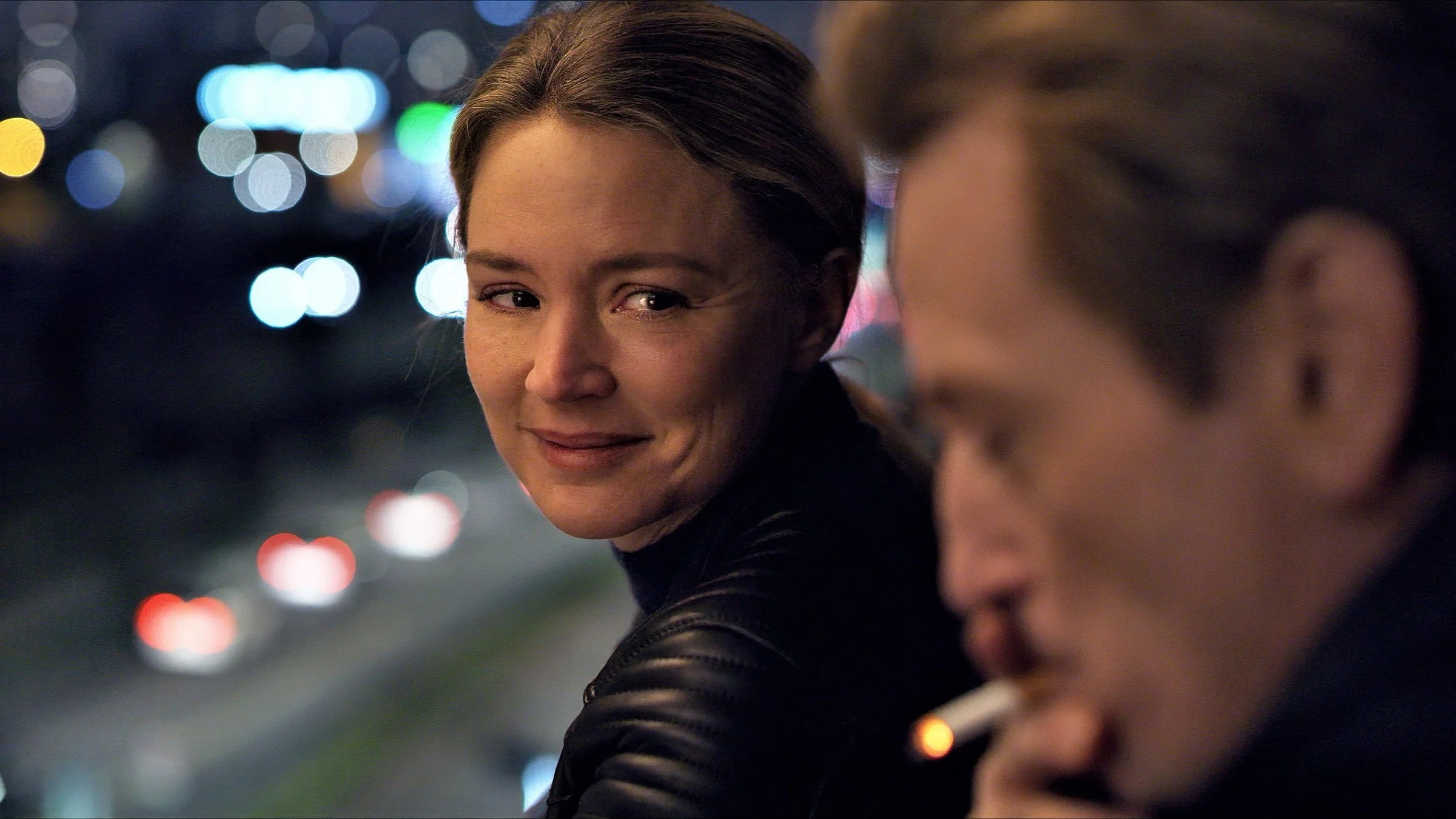Paris Memories
Alice Winocour’s latest drama is a work of distinction that indirectly honours the survivors of the Bataclan terrorist attack of 2015.
Virginie Efira and Benoît Magimel
In 2006 the Paul Greengrass film United 93 appeared and the praise that it justly received was accompanied by a sense of relief that in dealing with the tragedy of 9/11 it had found exactly the right tone for such sensitive subject matter. I was reminded of that when watching Alice Winocour’s Paris Memories (otherwise known as Revoir Paris). This is not a direct dramatic re-creation of a real-life event, however, but the comparison is apt because, in telling a story about a terrorist shooting in Paris, the film immediately brings to mind the Bataclan attack in 2015. Indeed, while this is a work with fictional characters, there is one connection to that outrage which could not be more personal and direct: Paris Memories is dedicated to Winocour’s brother, Jérémie, who attended that Bataclan concert but thankfully survived.
Looking afresh at the impact of such incidents on those unlucky enough to be present is of the essence here and, like Greengrass, Winocour has adopted an approach that is exactly what is needed. Her film is presented from the viewpoint of a radio station worker and translator named Mia (Virginie Efira), a woman who is by chance in a bistro when a shooting attack erupts there. Winocour’s portrayal (she is chief writer as well as director) is properly sensitive, powerful without ever for a moment feeling exploitative and deeply respectful of the real-life tragedy that it echoes. At the outset we get an everyday glimpse of Parisian life as we are introduced to Mia and to her partner Vincent (Grégoire Colin) who is a doctor. The music score by Anna von Hausswolff strikes a solemn note but that is the only hint of anything out of the ordinary. When the couple are about to eat out together in a restaurant, Vincent receives a phone call and explains to Mia that he is needed urgently at the hospital. Mia subsequently sets out for home alone and it is only because it is now raining hard that she enters the bistro to take shelter and to have a drink. We see the normality of the place as she looks at other customers but then violence breaks out as the bistro is invaded. Soon the screen goes black, a reflection of the fact that, although Mia is taken to hospital and will need an operation that leaves a scar, the shock of the event has, at least for the time being, left her with no clear memory of what happened to her.
Efira, recently seen in the extravagantly melodramatic period drama Benedetta, is here totally successful in giving a quietly realistic performance somewhat in the mode that Laure Calamy adopted in the recent French feature Full Time. Mia is absolutely central here as we see her tentatively returning to the bistro and discovering the presence of a support group run by Sara (Maya Sansa). At least one survivor, Camille (Anne-Lise Heimburger), shows hostility to Mia accusing her of behaving badly, even selfishly, during the attack – a reproach all the more disturbing to Mia due to her inability to remember exactly what did happen. In contrast, though, she encounters Thomas (Benoît Magimel), a banker who had been celebrating his birthday at the bistro and who now seeks to help Mia. As her memories gradually start to return, she becomes obsessive in wanting to trace a man who had held her hand during the attack - anxious indeed to learn whether or not he had survived - and Thomas is understanding about the strength of her concern over this (it so happens that the man, a cook at the bistro, was working there undocumented so finding news of him is far from easy).
The film’s portrayal of the lasting impact of the event on individuals is further widened by touching scenes in which Mia comes across a teenager, Félicia (Nastya Golubeva Carax), who lost both her parents in the attack. Another involving character is Nour (Sofia Lesaffre) a worker at the bistro who is willing to help Mia in her quest. Meanwhile, we see also how the extent to which Mia remains wrapped up in what happened to her becomes something that her partner finds difficult to understand and to accept.
Following 2019’s Proxima, Paris Memories confirms Winocour’s talent and everything relating to the main theme is masterly. What is less adroit is the way in which the second half of the film incorporates a romantic triangle as Mia’s relationship with Vincent becomes less easy even as she finds herself drawn into what could be a significant affair with Thomas despite his being married. This is less satisfactory both because it feels unnecessary and rather out of place and because the screenplay is less persuasive here (an exception is the brief portrait of Thomas's wife (Dolores Chaplin) which is well judged). One other weakness is a scene filling in the back story of Assane (Amadou Mbow), the man who had held Mia’s hand. The film is so much Mia’s narrative that the brief but sudden switch to his viewpoint feels misjudged. These elements make Paris Memories less than a masterpiece, but they are definitely secondary. In everything that really matters here Winocour has done a fine job and Virginie Efira never puts a foot wrong.
Original title: Revoir Paris.
MANSEL STIMPSON
Cast: Virginie Efira, Benoît Magimel, Grégoire Colin, Maya Sansa, Amadou Mbow, Nastya Golubeva Carax, Anne-Lise Heimburger, Sofia Lesaffre, Clarisse Makundul, Dolores Chaplin, Sokeh Ringuet.
Dir Alice Winocour, Pro Isabelle Madelaine and Emilie Tisné, Screenplay Alice Winocour, with Marcía Romand and Jean-Stéphane Bron, Ph Stéphane Fontaine Pro Des Margaux Remaury and Florian Sanson, Ed Julien Lacheray, Music Anna Von Hausswolff, Costumes Caroline Spieth.
Dharamsala/Darius Films/Pathé/France 3 Cinéma/Canal+/Ciné+-Picturehouse Entertainment.
103 mins. France. 2022. US Rel: 23 June 2023. UK Rel: 4 August 2023. Cert. 15.


